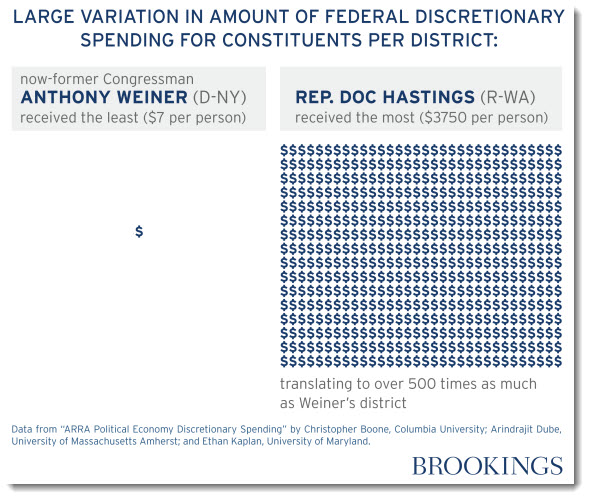The Spring 2014 Brookings Panel on Economic Activity is taking place March 20–21, 2014 at Brookings. The panels are being live-tweeted under the Chatham House rule using hashtag #BPEA.
In “The Political Economy of Discretionary Spending: Evidence from the American Recovery and Reinvestment Act,” Christopher Boone of Columbia University, Arindrajit Dube of the University of Massachusetts Amherst and Ethan Kaplan of the University of Maryland examine the $308 billion in discretionary spending that was a part of the American Recovery and Investment Act (ARRA), breaking out stimulus dollars by congressional district. They found that members of Congress don’t appear to have successfully used their influence to send stimulus-funded projects to their districts, but targeting areas with high local unemployment rates did not play much of a role either.
In addition to the paper on stimulus spending, the other new research findings at the spring conference include:
• What’s happened to the long-term unemployed?
• the effects of the Federal Reserve’s unconventional policies on financial stability
• an assessment of “Abenomics,” Japan’s aggressive monetary and fiscal stimulus
• the “wealthy hand-to-mouth” who own illiquid assets
• why the Fed should pursue a policy of targeting nominal GDP
The Brookings Institution is committed to quality, independence, and impact.
We are supported by a diverse array of funders. In line with our values and policies, each Brookings publication represents the sole views of its author(s).





Commentary
INFOGRAPHIC: Were Stimulus Funds Laden with Pork Barrel Spending?
March 21, 2014